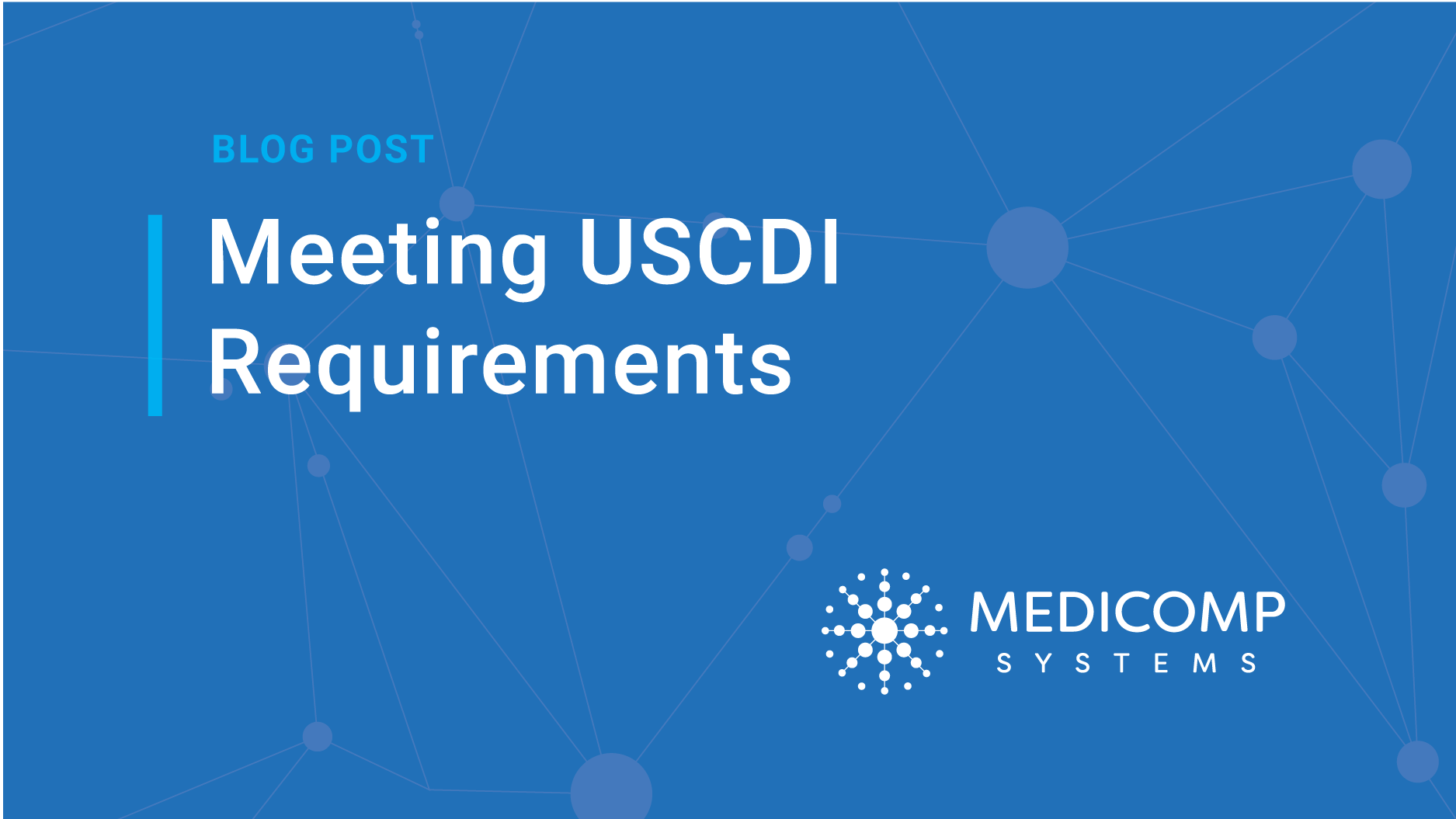Helping Healthcare IT Vendors Stay Ahead of the Curve
As healthcare IT vendors face the December 31, 2025 deadline to implement United States Core Data for Interoperability (USCDI) version 3, many are scrambling to update their systems. The challenge is particularly acute for smaller vendors who must balance core functionality updates with innovation. However, with the right technology partner, this regulatory requirement can become an opportunity for advancement rather than a burden.
Understanding the USCDI Mandate
The ASTP/ONC has mandated that all Certified Heath II must incorporate USCDI v3 by January 1, 2026. This requirement is particularly significant because it includes comprehensive Social Drivers of Health (SDOH) data elements, which are increasingly crucial for both care delivery and reimbursement.
The SDOH requirements aren’t just a technical checkbox — they’re tied directly to payment. Centers for Medicare & Medicaid Services (CMS) now requires reporting on health-related social needs (HRSNs) including food insecurity, housing instability, transportation needs, utility difficulties, and interpersonal safety. Healthcare providers must not only collect this data but also be able to act on it effectively.
The Challenge for Healthcare IT Vendors
For many healthcare IT vendors, especially smaller ones, implementing these requirements presents several challenges:
- Tight timelines for development and deployment
- Need for extensive testing and pilot programs
- Complex rollout processes, particularly for on-premise systems
- Requirements for both data collection and interoperability
- Integration with existing workflows without disrupting clinical care
- Maintaining and updating standards and code sets year-after-year
Medicomp’s Quippe: A Forward-Looking Solution
Medicomp Systems has anticipated these challenges by developing comprehensive support for USCDI v3 and v4 within its Quippe platform. The solution goes beyond mere compliance to deliver practical benefits for both vendors and healthcare providers.
Streamlined Implementation
- Pre-built support for all required USCDI data elements
- Direct mappings to specified standards
- Complete reference data elements from associated value sets
- Ready-to-use SDOH tools that integrate seamlessly with clinical workflows
Enhanced Clinical Workflow
- Interactive SDOH screening tools that reduce duplicate work
- Real-time insights for addressing issues like medication adherence
- Automated care coordination capabilities
- Efficient data capture integrated into existing processes
Future-Ready Architecture
- Support for both USCDI v3 and v4, with v5 support coming later in 2025
- FHIR-enabled export capabilities for seamless information sharing
- Flexible framework that can adapt to future regulatory requirements
- Built-in support for quality reporting and payment requirements
- Standards and code sets maintained on an ongoing basis
Beyond Compliance: Driving Better Outcomes
While meeting regulatory requirements is essential, the real value of proper SDOH implementation lies in improved patient care and outcomes. By using Quippe’s intelligent SDOH screening tools, healthcare providers can:
- Identify and address social barriers to care
- Improve medication adherence
- Reduce emergency room visits through better care coordination
- Enhance quality metrics and patient satisfaction
- Ensure appropriate reimbursement for services
Quippe as the Foundation
As healthcare continues to evolve, the ability to efficiently collect, analyze, and act on SDOH data will become increasingly important. By partnering with Medicomp and leveraging the Quippe platform, healthcare IT vendors can not only meet current regulatory requirements but also position themselves for future success in delivering value-based care.
For healthcare IT vendors looking to stay ahead of regulatory requirements while focusing on innovation, Medicomp’s Quippe provides a robust foundation that transforms compliance challenges into opportunities for enhanced care delivery and improved outcomes.
Learn more about how Quippe optimizes clinical workflows and enables data-driven care coordination here.
